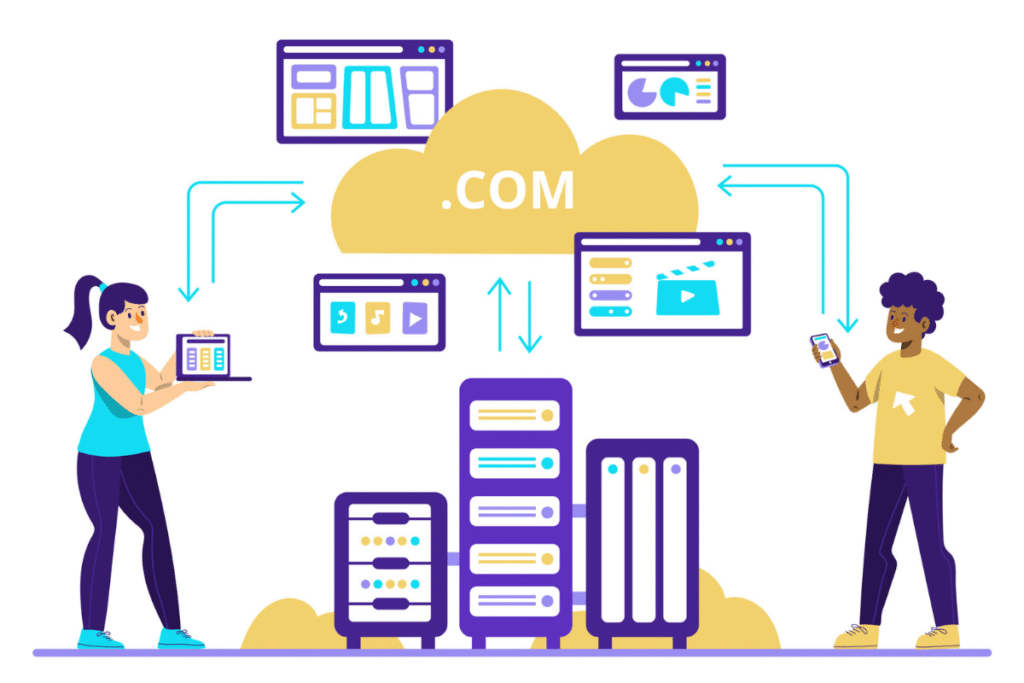Starting a website often comes with many decisions—domain names, design, content, and most importantly, hosting. For beginners, free web hosting may sound like a dream: you get to put your website online without paying a dime. But is it really worth it in the long run?
In this article, we’ll explore the pros and cons of free web hosting, explain who it’s best suited for, and highlight when it makes sense to upgrade to paid hosting. By the end, you’ll have a clear understanding of whether free hosting is the right choice for your online journey.
What is Free Web Hosting?
Free web hosting is a service provided by companies that allow users to host their websites on the internet at no cost. These services typically come with restrictions such as limited storage, bandwidth caps, mandatory advertisements, or a subdomain (like yoursite.hostprovider.com instead of yoursite.com).
Some of the most well-known free hosting providers include:
-
WordPress.com (free plan)
-
Wix (basic free plan)
-
Blogger
-
InfinityFree
-
000WebHost
Free hosting can be appealing to students, hobbyists, or small businesses testing the waters, but it’s important to weigh the benefits against the drawbacks.
The Pros of Free Web Hosting
Let’s start with the advantages that make free hosting so attractive.
1. No Financial Commitment
The biggest selling point is obvious—it’s free. For students, startups, or hobby bloggers who don’t want to invest money upfront, free hosting provides a risk-free way to experiment with building a website.
2. Quick and Easy Setup
Free hosting providers usually have simplified sign-up processes. With just a few clicks, you can register, choose a template, and launch your site. This is especially convenient for beginners who aren’t tech-savvy.
3. Learning Experience
If you’re new to website development, free hosting gives you an opportunity to learn how websites work without the pressure of paying for services. You can practice uploading files, using CMS platforms like WordPress, and managing content.
4. Ideal for Small or Temporary Projects
If you’re working on a class project, a personal portfolio, or a test site for learning, free hosting is often sufficient. You don’t need enterprise-level performance for a simple blog or experimental site.
5. Built-in Tools and Templates
Most free hosting providers include website builders, templates, and drag-and-drop editors. This makes it possible to design a decent-looking site even if you don’t know coding.
6. Community and Support Resources
Popular free hosting services like WordPress.com or Blogger have massive communities. You can find tutorials, forums, and guides easily, making the learning curve less steep.
The Cons of Free Web Hosting
While free hosting has its advantages, there are several limitations that can seriously impact your site’s growth and professionalism.
1. Lack of Custom Domain
Most free hosting services only offer subdomains (like yoursite.freehost.com). This looks unprofessional and makes branding difficult. A custom domain adds credibility and trustworthiness, which free hosting can’t provide without upgrading.
2. Limited Resources (Storage and Bandwidth)
Free hosting usually comes with very limited storage space (sometimes as low as 500 MB) and bandwidth. If your site grows or you add multimedia content, you may quickly run into restrictions.
3. Poor Performance and Uptime Issues
Since free hosts share servers with thousands of users, performance can be unreliable. Slow loading speeds and frequent downtime may frustrate visitors and hurt your SEO rankings.
4. Forced Advertisements
To make money, many free hosting providers display ads on your website. You don’t have control over the ads, which can look unprofessional or irrelevant to your audience.
5. Lack of Customer Support
Free plans often offer little to no customer support. If something breaks on your website, you may be left on your own to troubleshoot.
6. Security Risks
Free hosting platforms don’t always invest heavily in security. Your website may be more vulnerable to hacking, malware, or data loss compared to a premium host.
7. Limited Scalability
As your website grows, you’ll quickly outgrow free hosting. Adding advanced features like e-commerce, custom plugins, or high-traffic support will almost always require upgrading to paid hosting.
8. No Full Ownership
Since you’re not paying, the hosting company technically owns the server space and may even control your content. In some cases, your site can be taken down without notice if you violate terms of service.
Free vs. Paid Web Hosting: A Quick Comparison
| Feature | Free Hosting | Paid Hosting |
|---|---|---|
| Cost | Free | Monthly/Yearly Fee |
| Domain | Subdomain only | Custom domain support |
| Storage & Bandwidth | Very limited | Scalable, higher limits |
| Ads | Forced ads | No ads (unless you choose) |
| Performance | Often slow | Optimized and reliable |
| Customer Support | Minimal | 24/7 professional support |
| Security | Basic | Advanced security features |
| Scalability | Limited | Easy to upgrade |
| Ownership | Host controls | Full ownership of your site |
Who Should Use Free Web Hosting?
Free web hosting isn’t useless—it’s just limited. It’s best for:
-
Beginners learning web design or WordPress basics.
-
Students creating educational projects.
-
Hobby bloggers who just want a simple site for fun.
-
Testing purposes, like experimenting with layouts or plugins before moving to a paid site.
If you’re a business owner, freelancer, or someone who wants to grow an online presence, investing in paid hosting is usually a smarter choice.
When to Upgrade from Free to Paid Hosting
You should consider upgrading when:
-
You want a custom domain name (e.g., mybusiness.com).
-
Your site starts getting more traffic and needs better performance.
-
You want to add advanced features like e-commerce, email hosting, or custom plugins.
-
You’re concerned about security and backups.
-
You want professional support to solve issues quickly.
Paid hosting doesn’t have to be expensive. Many reliable hosts like Bluehost, SiteGround, and Hostinger offer affordable plans starting at just a few dollars per month.
FAQs
Is free web hosting safe?
Free web hosting is generally safe for small projects, but it lacks advanced security features. If you’re handling sensitive data, paid hosting is strongly recommended.
Can I upgrade from free hosting to paid hosting later?
Yes. Most free hosting providers offer paid plans with better features. However, migrating can sometimes be tricky, so it’s best to plan ahead.
Will free hosting affect my SEO?
Yes. Slow speeds, downtime, and lack of a custom domain can hurt your SEO rankings. Paid hosting usually performs better in search results.
Can I run an e-commerce store on free hosting?
Technically, yes, but it’s not recommended. Free hosting lacks the speed, security, and scalability required for online stores.
What is the best free web hosting service?
Some popular options include WordPress.com, Wix, and 000WebHost. Each has limitations, so the “best” one depends on your goals.
Conclusion
Free web hosting is an excellent starting point for beginners, students, and hobbyists who just want to get online without financial risk. It allows you to learn, test, and experiment with website building.
However, for anyone serious about building a professional online presence, the limitations—such as lack of custom domains, forced ads, poor performance, and security concerns—make free hosting unsuitable in the long term.
Think of free hosting as training wheels for your website journey. It’s a good way to start, but eventually, you’ll want to upgrade to paid hosting for better performance, security, and growth opportunities.

